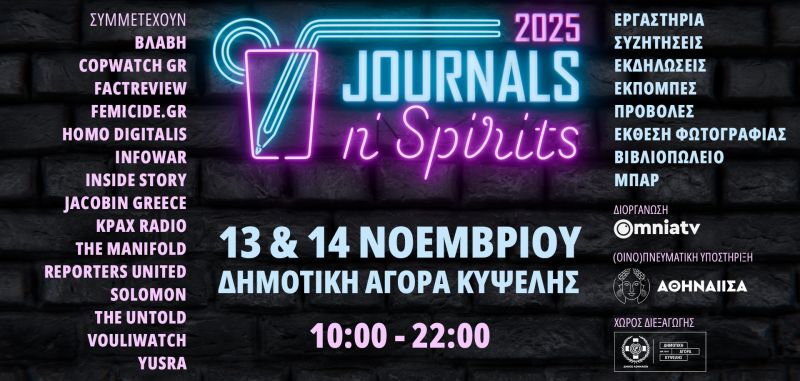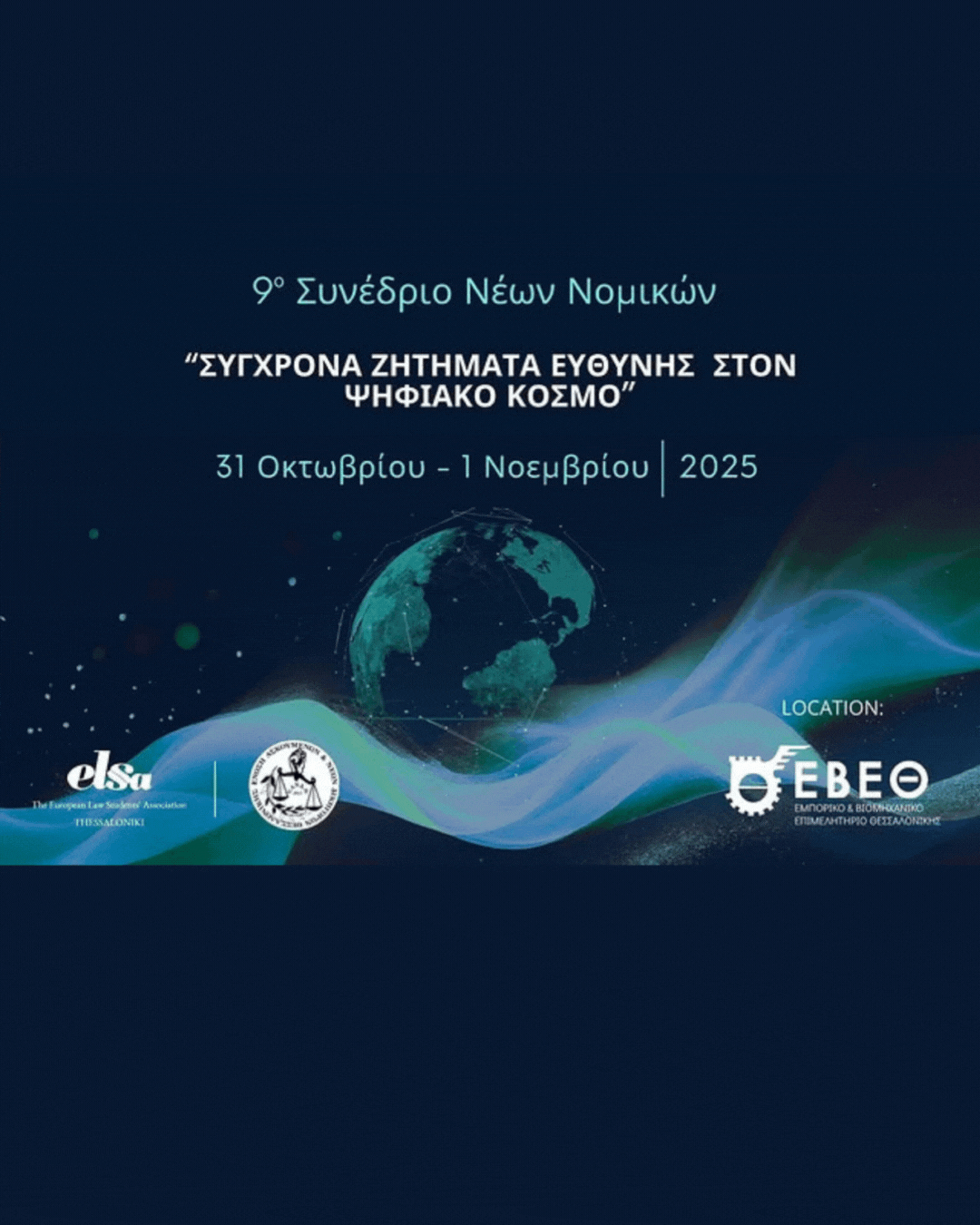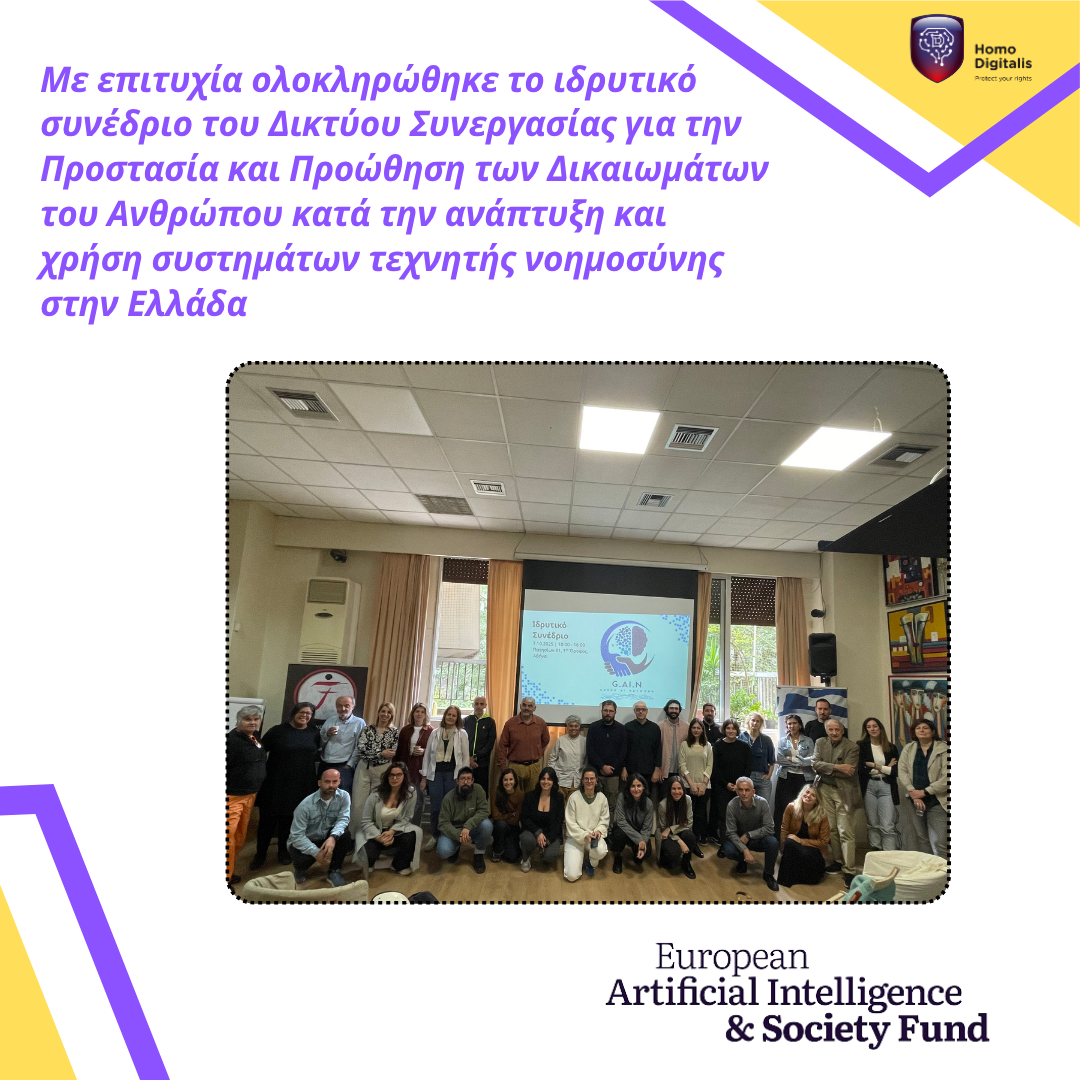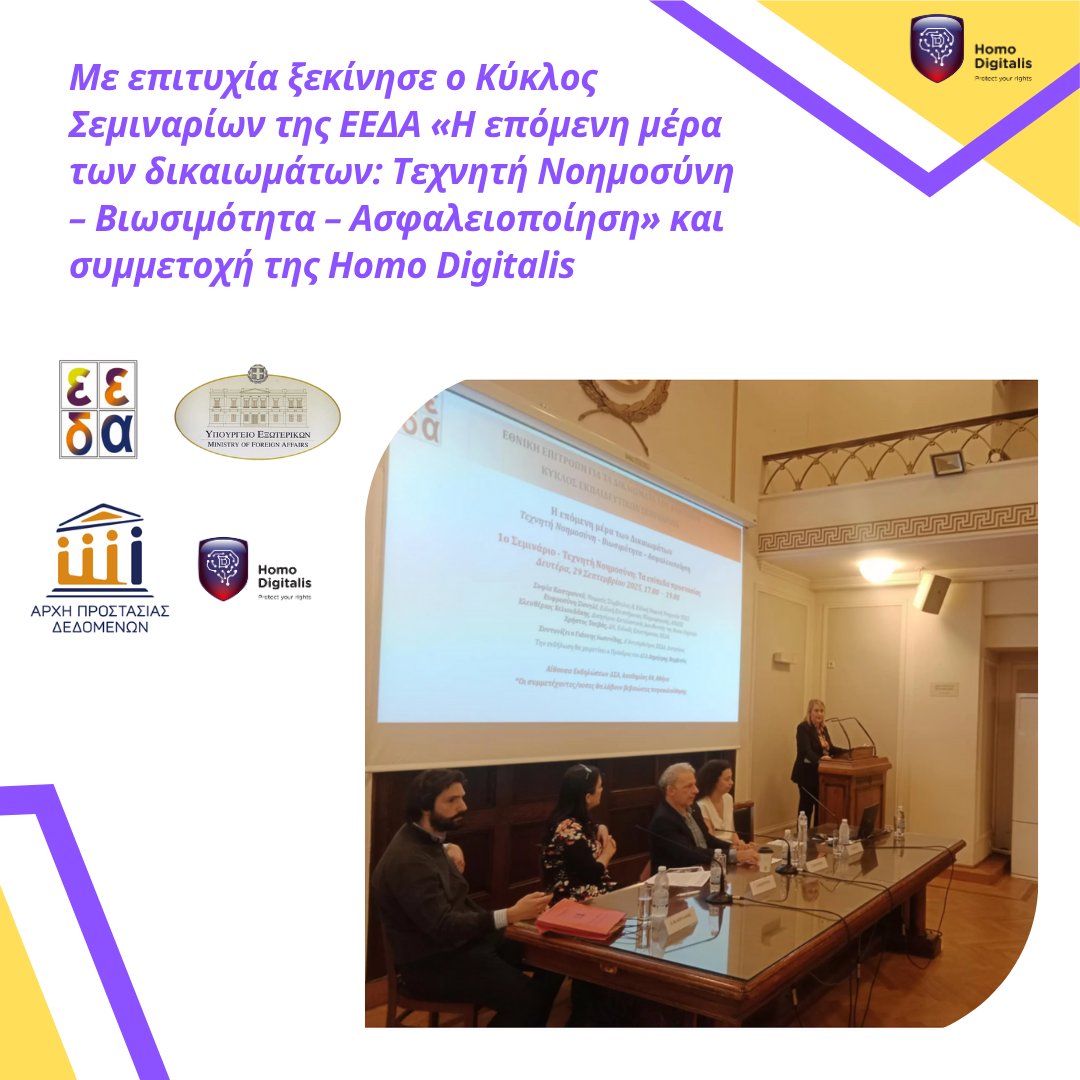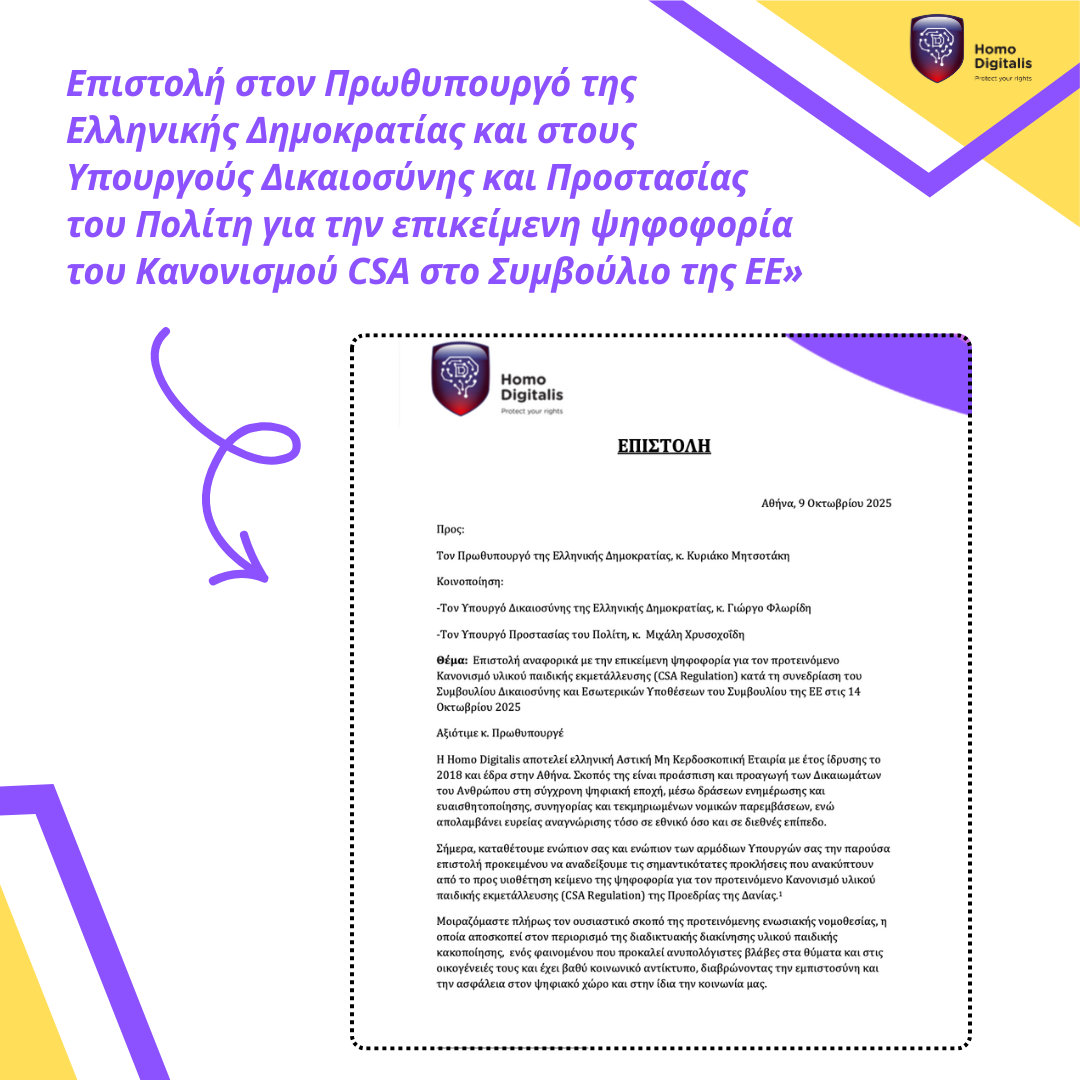We are co-organizing Journals n’ Spirits 2025 and we look forward to seeing you there!
Join us at Journals n’ Spirits 2025, organized by omniatv at the Kypseli Municipal Market, on November 13 & 14!
Sixteen independent journalism, research, and print media initiatives—including Homo Digitalis—will host workshops, discussions, and live broadcasts. All of this while enjoying our favorite drinks, and, in collaboration with the Skrip Bookstore, publications by members of the participating initiatives will also be available throughout the two-day event.
We will be speaking on November 13 at 14:00 about digital payments and the GNU Taler tool (NGI TALER | Taler Systems S.A.), which is based on the principles of free/libre software and is reshaping the model of electronic micropayments with respect for privacy.
Learn more about the workshops, broadcasts, photo exhibition, and documentary screening in the detailed two-day program available here.
Participating initiatives (in alphabetical order):
Vlavi (magazine), Copwatch GR, FactReview, Femicide.gr, Homo Digitalis, INFOWAR, inside story., Jacobin Greece, KRAX Radio, The Manifold, OmniaTV, Reporters United, Solomon, The Untold, Vouliwatch, YUSRA (magazine/publications).
Speech by Homo Digitalis at the 9th Conference of Young Lawyers in Thessaloniki
ELSA Thessaloniki and the Association of Trainee and Young Lawyers of Thessaloniki (EANDiTh) are organizing the 9th Conference of Young Lawyers today and tomorrow at the Thessaloniki Chamber of Commerce and Industry.
It is a great honor for Homo Digitalis to participate in this event, and we sincerely thank the organizers for their kind invitation.
More specifically, tomorrow, November 1, from 10:45 to 12:15, during the first panel of the day entitled “Contemporary Issues of Liability in the Digital World,” our member Melina Skondra will speak.
She is a Lawyer admitted to the Supreme Court, DPO, CIPP/E, and holds an MSc in Law & Informatics (University of Macedonia), with unique specialization in relevant fields.
The title of her presentation is “GDPR & Compensation.”
The line-up of the other speakers includes:
Spiros Tassis, POTAMITISVEKRIS (TMT, Data & IP), Chairman of the Hellenic Data Protection and Privacy Association, and Member of the Board of the European Federation of Data Protection Officers (EFDPO)
Athanasios-Antonios Leontaris, Lawyer / Legal Counsel and Industry Fellow at the Institute for the Future, University of Nicosia
Pavlos Salonikidis, Lawyer admitted to the Courts of Appeal, holder of an LL.M. in International and European Legal Studies, Faculty of Law, Aristotle University of Thessaloniki
We look forward to seeing you there!
Speech by Homo Digitalis at an event of the Global Shapers Thessaloniki Hub on AI
It is a great pleasure for Homo Digitalis to participate in the Global Shapers Thessaloniki Hub event series, “Coffee with Shapers”!
The theme of the event is AI & Human Rights and it will take place on Saturday, November 1, 2025, from 16:30 to 20:00, at OKTHESS.
Homo Digitalis will be represented by our members Evi Fotopoulou and Dimos Kostoulas.
Admission is free, and the registration form is available here.
We would like to warmly thank the organizing team and Emily Fisher for the kind invitation!
The Founding Conference of the Greek Artificial Intelligence Network – GAIN Successfully Concluded
The founding conference of the Cooperation Network for the Protection and Promotion of Human Rights in the Development and Use of Artificial Intelligence Systems in Greece was successfully completed! The provisional title of the network is Greek Artificial Intelligence Network – GAIN.
The network aspires to become a space for collaboration, knowledge exchange, and mutual support, fostering initiatives in awareness-raising, advocacy, and legal assistance — with the central goal of safeguarding Human Rights in the development and use of Artificial Intelligence systems.
The network’s activities aim to go beyond the minimum legal guarantees, drawing guidance from codes of ethics that emphasize morality, transparency, and accountability in the design, implementation, and evaluation of AI technologies.
The event took place on October 7, 2025, hosted at the offices of the Greek Forum of Migrants, where members and observers of the network had the opportunity to discuss, plan, and lay the foundations for an open, collaborative, and socially responsible AI community in Greece.
During the event, Open Lab Athens delivered an educational presentation on the technical characteristics and materialities of machine learning, significantly contributing to the discussion and collective understanding of the related technologies and their limitations.
The initiative is coordinated by the Homo Digitalis team, with the support of the European Artificial Intelligence & Society Fund (EAISF).
You can read the related Press Release (ΕL) here.
Organizations participating in the network’s processes as members or external observers include (in alphabetical order):
Ανοιχτό Εργαστήριο Αθήνα | Open Lab Athens
Διεπιστημονική Εταιρία Έρευνας στην Αιματολογία – ΔΕτΕΑ
Δίκτυο για τα Δικαιώματα του Παιδιού | Network for Children’s Rights
Ε.Κ.ΠΟΙ.ΖΩ.Ένωση Καταναλωτών «Η Ποιότητα της Ζωής» | Consumers’ Association “The Quality of Life” EKPIZO
Ελληνική Ένωση Δικαιωμάτων του Ανθρώπου | Hellenic League for Human Rights
ΕΛΛΗΝΙΚΟ ΣΥΜΒΟΥΛΙΟ ΓΙΑ ΤΟΥΣ ΠΡΟΣΦΥΓΕΣ | GREEK COUNCIL FOR REFUGEES
Ελληνικό Φόρουμ Μεταναστών | Greek Forum of Migrants
Εταιρεία Περιφερειακής Ανάπτυξης και Ψυχικής Υγείας – ΕΠΑΨΥ | Association for Regional Development and Mental Health – EPAPSY
Ένωση Πληροφορικών Ελλάδος
Ινστιτούτο Έρευνας Ρυθμιστικών Πολιτικών – ΙΝΕΡΠ | Institute for Regulatory Policy Research – INERP
Κέντρο ΔΙΟΤΙΜΑ
ΚΥΤΤΑΡΟ ΕΝΑΛΛΑΚΤΙΚΩΝ ΑΝΑΖΗΤΗΣΕΩΝ ΝΕΩΝ – ΚΕΑΝ | CELL OF ALTERNATIVE YOUTH ACTIVITIES
Με Άλλα Μάτια | Me Alla Matia
Οργανισμός Ανοιχτών Τεχνολογιών – ΕΕΛΛΑΚ | Open Technologies Alliance (GFOSS)
ΠΑΡΑΤΗΡΗΤΗΡΙΟ ΑΣΤΥΝΟΜΕΥΣΗΣ copwatch.gr
AMKE REVMA – ROMA EDUCATIONAL VOCATIONAL MAINTAINABLE ASSISTANCE
Athens Network of Collaborating Experts -ANCE
DATAWO
ERGO.Academy
HIAS Greece
Homo Digitalis
I Have Rights
In contACT
inside story.
KnowledgeRights21 (National coordinator for Greece and Cyprus)
OmniaTV (iCase Κοιν.Σ.Επ.)
Reporters United
SolidarityNow
Solomon
VISIBLE MACHINES
Vouliwatch
WHEN Equity Empowerment Change
WWF Greece
Homo Digitalis speaks at the 1st Seminar of the GNCHR Educational Seminar Series on “Artificial Intelligence: Levels of Protection”
With great success and active public participation, on Monday, September 29, 2025, the opening event of the Educational Seminar Series of the Greek National Commission for Human Rights (GNCHR) took place in the event hall of the Athens Bar Association (DSA), under the theme:
“The Next Day of Rights: Artificial Intelligence – Sustainability – Securitization.”
Homo Digitalis had the great honor of contributing with a presentation in the first seminar of the series, titled “Artificial Intelligence: Levels of Protection.”
Opening remarks were delivered by Marinetta Gounari–Chatzisarantou, Vice President of the Athens Bar Association, while the event was moderated by Giannis Ioannidis, First Vice President of the GNCHR.
Speakers at the seminar included, in order:
Sofia Kastranta, Senior Legal Advisor, Special Legal Service of the Ministry of Foreign Affairs
Dr. Efrosini Siougle, Expert Scientist in Informatics, Head of the Advisory and Compliance Mechanisms Department of the Hellenic Data Protection Authority
Eleftherios Chelioudakis, LL.M, M.Sc, Lawyer and Executive Director of Homo Digitalis
Dr. Christos Tsevas, Expert Scientist of the GNCHR
We warmly thank the Greek National Commission for Human Rights for the kind invitation to participate!
You can watch the full event here.
The second seminar will take place at the Athens Bar Association on Monday, October 13, from 17:00 to 19:00, on the topic: “Artificial Intelligence: Rights.”
Find more information here.
We submit an Open Letter to the Prime Minister, calling on the Hellenic Republic to reject the Danish Presidency’s text on the CSA.
Homo Digitalis today submitted an Open Letter to the Prime Minister of the Hellenic Republic, Kyriakos Mitsotakis, regarding the proposed Regulation on Child Sexual Abuse Material (CSA Regulation).
In our letter — which we have also shared with the Minister of Justice and the Minister for Citizen Protection — we call on the Hellenic Republic to reject the Danish Presidency’s text in the upcoming vote at the EU Justice and Home Affairs Council on October 14, 2025.
The objective of the Regulation — to curb the distribution of child sexual abuse material — is right and necessary. However, the text proposed by the Danish Presidency would achieve the opposite effect, undermining security and trust in the digital space.
Specifically, 787 leading experts in communication security and encryption — including professors from top academic institutions in Greece — have emphasized that:
The technology for detecting child sexual abuse material is inaccurate and ineffective.
Mandatory scanning undermines end-to-end encryption and opens the door to mass surveillance.
The proposed technical measures can be easily bypassed by malicious users and threaten anonymity and freedom of information.
Real child protection comes through education and support for victims, not through mass monitoring.
On October 14, Greece’s position must be guided by knowledge, technical expertise, and the fundamental principles and values upheld by the EU Charter of Fundamental Rights and the Constitution of Greece.
You can read the full text of our open letter here.
You can also read a related article recently published on our website by our member Stergios Konstantinou here.
Learn more about Homo Digitalis’s work on this issue, including past meetings between our members — Haris Kyritsis, Haris Daftsios, Niki Georgakopoulou, Giorgos Sarris, and Angelina Barla — and Greek Members of the European Parliament, in cooperation with European Digital Rights (EDRi), here.
Homo Digitalis Participates in the European Commission’s Meeting on the Protection of Minors Online under the DSA Framework
The Directorate-General for Communications Networks, Content and Technology (DG CONNECT) of the European Commission visited the offices of the Representation of the European Commission in Athens, holding a series of discussions within the framework of the Digital Services Act (DSA) with various stakeholders and interested parties.
On Tuesday, September 30, a meeting was held on the topic of “Protection of Minors,” aiming to exchange views while taking into account the Commission’s recent Guidelines on Article 28 of the DSA and the need to strengthen the protection of minors online.
Homo Digitalis had the honor to participate in the discussion alongside representatives from independent authorities (EETT, Hellenic Data Protection Authority, National Council for Radio and Television), as well as representatives from the Ministry of Digital Governance, the academic community, and other organizations.
We warmly thank Ilektra Makraki, representative of the European Commission Representation in Greece for the DSA, for the invitation and inclusion. Homo Digitalis was represented at the meeting by its Co-founder and Executive Director, Eleftherios Chelioudakis.
The 10th Open Call for Funding of NGI TALER is here!
A short intro about NGI TALER
The NGI TALER project is funded as a pilot under the NGI initiative within the European Commission’s Horizon Europe research funding program. It is operated by a consortium of 11 partners from 8 European countries (Belgium, France, Germany, Greece, Hungary, Luxembourg, Switzerland and The Netherlands) with the mandate to roll out an innovative, best-in-class electronic payment system that benefits everyone: end-consumers, merchants, banks, financial authorities, auditors and anti-corruption researchers! The project builds upon the strong foundations of GNU Taler — the privacy-preserving digital payment system developed by the GNU community and Taler Systems SA with support from the NGI initiative. Read more on NGI TALER’s website, here.
What is this funding call about?
Part of the budget of NGI TALER is reserved for open calls to fund additional free software efforts that are aligned with the topics and approach of NGI TALER. We invite your contributions to help reshape the state of play of digital payment systems, and to help create an open, trustworthy and reliable internet for all! You can contribute exciting new capabilities to GNU Taler itself, build auxiliary tools or work on user experience, but you could also be developing integrations into FOSS applications and open standards, or work on improvements to infrastructure components like merchant back-ends. See more info about the wide range of activities that qualify for financial support and the eligibility criteria here.
How to apply?
The open call is open since 01/10/2025 and the deadline to submit your application is December 1st, 2025, 12:00 CET! You can apply only with proposals between 5.000 and 50.000 euro (60.000 euro is the cumulative absolute hard limit for any applicant for the program). To apply you need to fill in a specific form! From our end we will provide a transparent and efficient selection process. More info in the links below:
We submitted our views to the European Commission’s public consultation on the assessment of the impact of the Digital Markets Act (DMA)
On September 23, Homo Digitalis submitted its views to the European Commission’s Public Consultation as part of the report it is preparing on the assessment of the impact of Regulation (EU) 2022/1925 on Digital Markets (Digital Markets Act – DMA).
The real impact of the DMA depends on the Commission’s determination to enforce it, honoring both the letter and the spirit of the regulation — namely, to create open and competitive digital markets, strengthen competition, and protect users’ rights.
You can read our full submission here.
For more information about the public consultation, click here.
